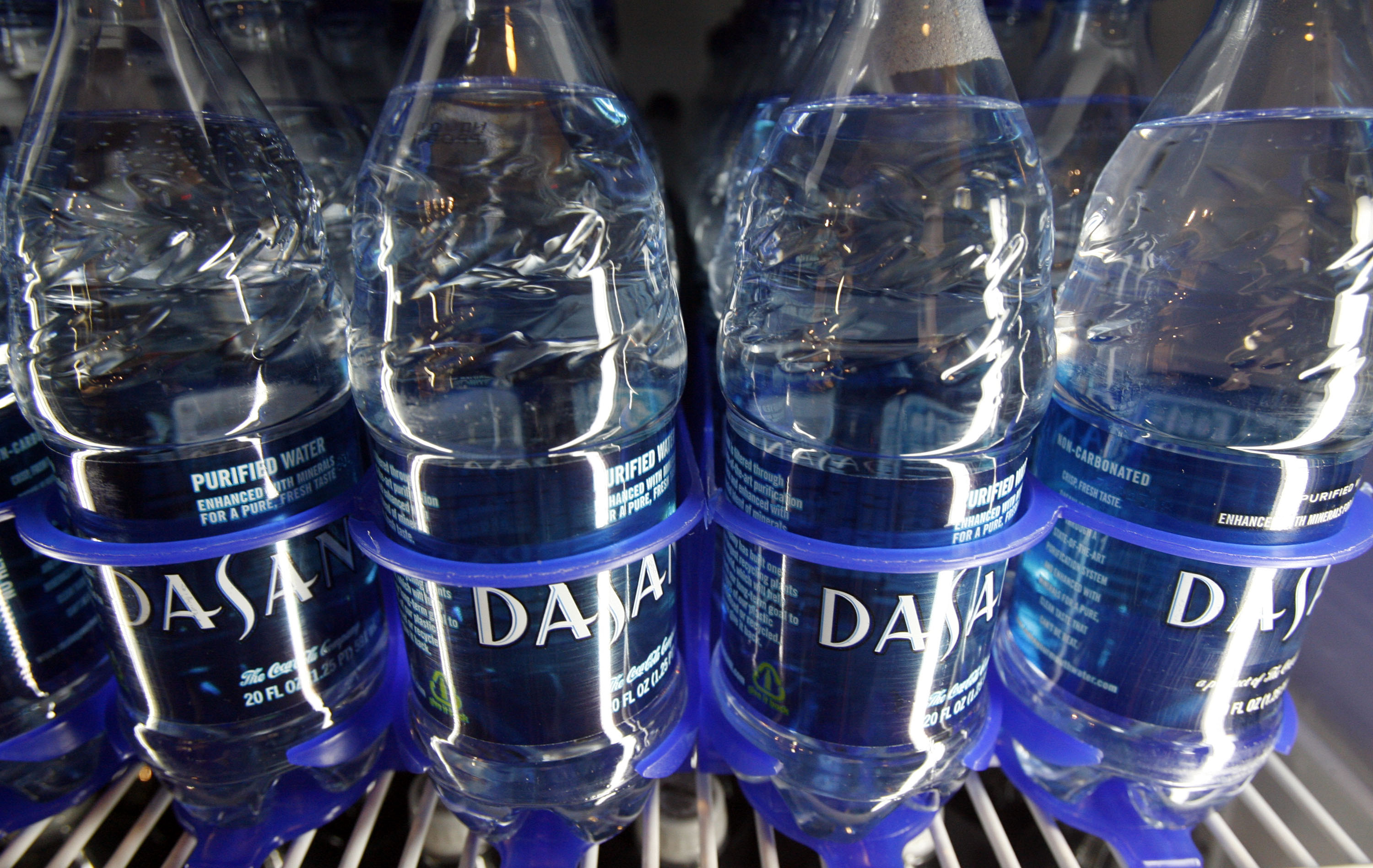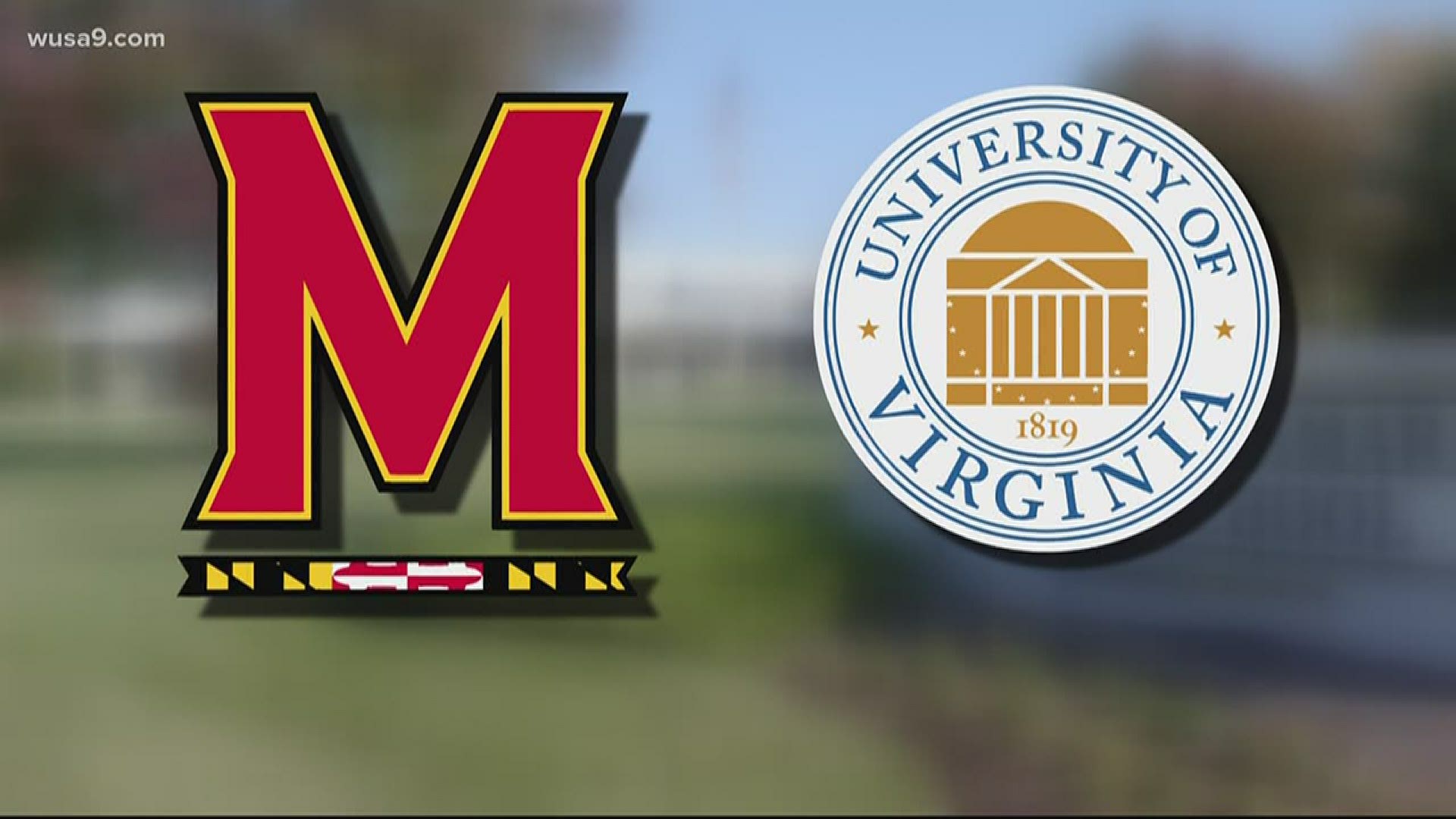Plain ol' water, nature's original soft drink, is on the verge of breaking the country's obsession with soda.
Bottled water has emerged as the unlikely drink of choice for a society that's long opted to guzzle sugar-sweetened beverages. A new report from Beverage Marketing found that bottled water consumption grew 120% between 2000 and 2015.
That rapid rise has occurred as carbonated beverages have slowly fallen out of favor, going down 16% in the same time period. Increasing concerns over the health impacts of high-sugar beverages and the general trend toward diets filled with more natural food and drinks have helped push bottled water toward the top of the pack.
But it's not just replacing carbonated beverages. Bottled water, both sparkling and still varieties, has become an alternative for juice, tap water and even alcoholic drinks, says Michael Bellas, CEO of Beverage Marketing.
"Water is both a tap water replacement and a refreshment beverage," he says. "It was really one of the very first beverages to start to be consumed for health reasons."
Water consumption has also risen because water is so versatile, not relegated to breakfast like orange juice or to exercise, like sports drinks. "Bottled water is the only beverage that is consumed all day long," Bellas says.
He expects consumers to be drinking more water than soda by early 2017, if not the end of this year. Bottled water consumption already exceeds tap water, according to Beverage Marketing.
Major beverage manufacturers like Coca-Cola and PepsiCo have been shifting their portfolios away from carbonated beverages in order to capitalize on health and wellness trends while hedging against falling soda sales. They have big stakes in bottled water. Pepsi owns Aquafina. Coke owns Smartwater and Dasani, two of the brands that helped it achieve a 7% increase in still beverage volume in the first quarter this year. The two beverage giants don't break out financial results of bottled water sales.
Still, the fact that we're increasingly quenching our thirst with water is not necessarily a welcome trend for major beverage companies. The problem: customers are not nearly as loyal to water brands as they are to soda varieties, says Joseph Agnese, an equity analyst with S&P Global Market Intelligence. Or in other words, water is water, and doesn't spark the same kind of heated debate that often comes up between lovers of Pepsi vs. Coke.
Lower margins in bottled water also mean it's not as profitable.
"The margins of the business and the loyalty issues make it not nearly as attractive as it is with carbonated soft drinks," Agnese says. "It's hard to compete with."
The trend has its detractors, those who argue all that plastic bottle waste is bad for the environment — one company has gained prominence for selling an eco-friendly boxed water — and it's only bittersweet as far as health is concerned too.
The good news is that the gradual switch means Americans have cut trillions of calories from their diets that used to come from sugary, carbonated drinks. Beverage Marketing estimates an individual saved an average of 24,000 to 27,000 calories last year — when bottled water consumption reached an all-time high of 11.7 billion gallons — compared to 2000, when Americans consumed 4.7 billion gallons of bottled water.
The bad news is the majority of Americans are still overweight or obese. The most recent figures, from 2011 to 2012, show more than a third of Americans are considered obese, relatively unchanged from 2003 to 2004, according to the Journal of American Medicine.
"It's not due from beverage intake in general," Bellas says, "because caloric intake of beverages of all types has gone down."

![AP UVM BOTTLED WATER A F FILE USA VT [image : 85555770]](http://www.gannett-cdn.com/media/2016/06/07/USATODAY/USATODAY/636009031762122085-AP-UVM-Bottled-Water.jpg)

